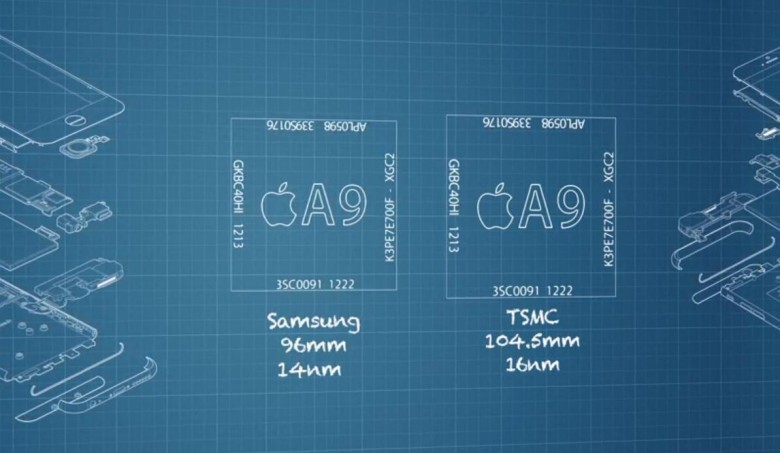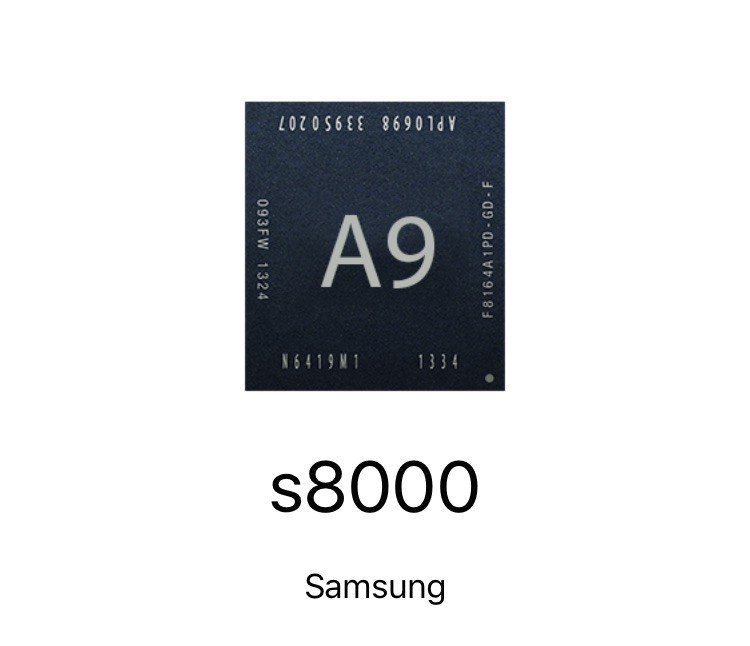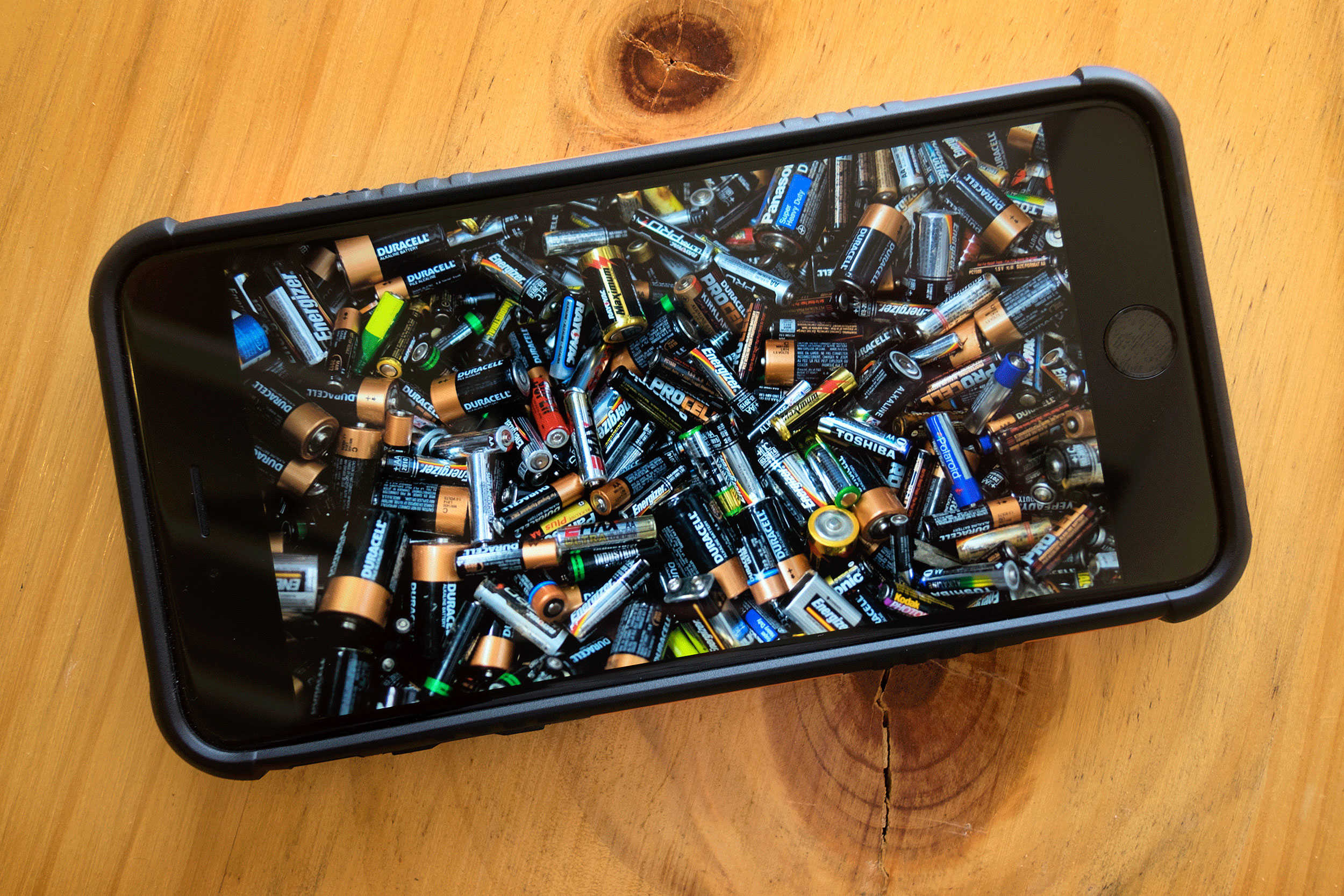If you’re confused about the so-called ‘Chipgate’ controversy swirling around the Internet today, we’re here to help.
It just wouldn’t be an iPhone launch without something going awry, and the latest outcry concerns the relative performances of the iPhone 6s and 6s Plus’ A9 processors, especially their effects on the phones’ battery lives. And if that all sounds a bit technical and boring, it is. But it’s not too hard to understand.
So what’s going on?
Apple outsourced production of the A9 processors for the new iPhones to two companies, TSMC and Samsung, and the two companies’ chips are different sizes. Samsung’s version is 96 square millimeters, and TSMC’s is a slightly larger 104.5 square millimeters. The size difference is simply due to the two manufacturers using different technologies and shouldn’t affect performance at all, some iPhone 6s owners are claiming otherwise.
The video below, by YouTube user Austin Evans, compares battery performance between a Samsung-chipped phone and one with TSMC’s hardware and shows that under some circumstances, the latter phone saw a markedly longer battery life, but in others, they ran about the same.
Evans uses an info app for his experiment called Lirum that could identify which processor a phone has, and he managed to pull the model numbers for reference. The Samsung chips are numbers N71AP (iPhone 6s) and N66AP (iPhone 6s Plus), and the TSMCs are N71MAP (6s) and N66MAP (6s Plus).
Those numbers are obviously the same regardless of the diagnostic tool you use, but Lirum quickly disappeared from the App Store.
You mean Apple pulled it? That’s shady as hell!
It’s okay, imaginary, overreacting person. Lirum pulled the app on its own due to compatibility issues with new hardware like the iPhone 6s and the iPad Air 2. And we’ve since heard that developer Lirum Labs is putting the app back up.
“As the App was an old version, some crashes were reported and the lack of detailed specs for the newer devices made us take the app down to avoid negative reviews,” a Lirum spokesperson told Cult of Mac over e-mail. “But due to popular demand, we put it back online. An update is still on the way.”
So don’t even worry about that, folks. It was a non-spiracy.
You can grab both paid and free versions of the app now.

Image: Austin Evans/YouTube
What if I want to be extra, extra sure?
Lirum isn’t the only way to know which chip your iPhone 6s has. You can check out our convenient guide to other diagnostic tools that might interest you.
Is it just battery life, or do I have anything else to worry about?
Since the chip differences are a recent discovery, people are still experimenting to see if it’s affecting other parts of the new iPhone’s performance. We’ll get more information over the next day or so as findings emerge, but preliminary research claims that while the Samsung chips may rob battery life and run a bit hotter (3 degrees Celsius), but they may also run slightly faster.
It’s a mixed bag, really.
I don’t want this crappy chip! Can I return my phone and get one with the ‘good’ chip?
If you bought your iPhone 6s on launch day, you’re still within Apple’s 14-day return period. But just barely; it expires tomorrow. So if you feel compelled to exchange your phone, now’s the time.
The bad news, however, is that it’s impossible to know which A9 processor your iPhone has until you’ve taken it out of the box, so you could still end up with the one you don’t want.

What does Apple have to say about this?
We’ve actually gotten some official word out of the company on “Chipgate” — this is how much noise the Internet has made about it. And Apple isn’t impressed with the real-world tests.
Here’s its statement:
“With the Apple-designed A9 chip in your iPhone 6s or iPhone 6s Plus, you are getting the most advanced smartphone chip in the world. Every chip we ship meets Apple’s highest standards for providing incredible performance and deliver great battery life, regardless of iPhone 6s capacity, color, or model.
“Certain manufactured lab tests which run the processors with a continuous heavy workload until the battery depletes are not representative of real-world usage, since they spend an unrealistic amount of time at the highest CPU performance state. It’s a misleading way to measure real-world battery life. Our testing and customer data show the actual battery life of the iPhone 6s and iPhone 6s Plus, even taking into account variable component differences, vary within just 2-3% of each other.”
So according to the people making iPhones, the people testing the devices aren’t accurately re-creating “real-world” circumstances because they are applying unrealistic stress to the CPU. Your phone’s guts aren’t likely to be cranked up that high for so long in day-to-day use, so these kind of stress tests aren’t the best way to compare, Apple says.


